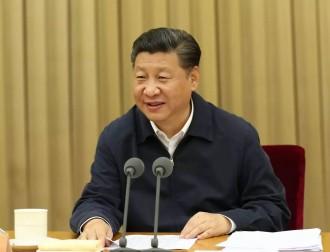Days before top sitting and retired leaders of the Chinese regime headed off to Beidaihe to enjoy the resort and discuss political arrangements, hundreds of officials from all over the country were summoned to Beijing for an emergency meeting in a special hotel that hosts political conferences.
From July 26 to July 27, around 300 provincial-level officials, military generals and Party elders gathered in the high-security Jingxi Hotel to study a keynote speech by Xi Jinping.
“Xiakedao,” an official WeChat account of the overseas version of the People’s Daily, declared the meeting “the most important high-level meeting ahead of the 19th Congress.” The article headline reads: “Great things have finally come to pass.”

Xi Jinping gives a keynote speech during the two-day conference on July 26 or 27. via Sina





